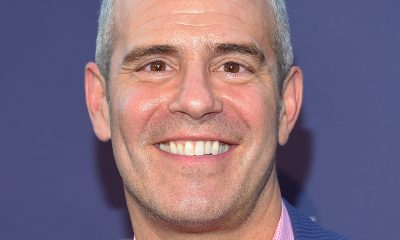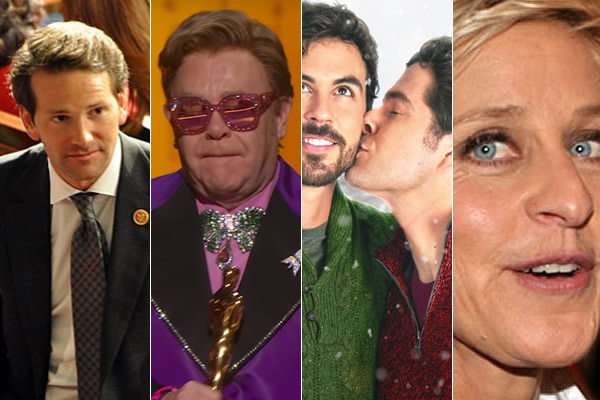Arts & Entertainment
Gloria Vanderbilt dies at 95
The socialite was known for tabloid scandal and fashion empire

Gloria Vanderbilt. (Photo via Wikimedia Commons)
Actress, fashion designer and socialite Gloria Vanderbilt died at her home on Monday after a battle with stomach cancer. She was 95.
Her son, CNN news anchor Anderson Cooper, confirmed the news to CNN.
“Gloria Vanderbilt was an extraordinary woman, who loved life, and lived it on her own terms,” Cooper said in a statement to CNN. “She was a painter, a writer, and designer but also a remarkable mother, wife, and friend. She was 95 years old, but ask anyone close to her, and they’d tell you, she was the youngest person they knew, the coolest, and most modern. She died this morning, the way she wanted to – at home, surrounded by family and friends.”
Vanderbilt was born on Feb. 20, 1924 as the only child to Reginald Claypoole Vanderbilt, the grandson of railroad tycoon Cornelius Vanderbilt, and Gloria Morgan Vanderbilt. When he was 45, Reginald died of cirrhosis of the liver leaving his 18-month-old daughter to be raised by her mother. Vanderbilt and her half-sister Cathleen Vanderbilt each inherited half of a $5 million inheritance.
Gloria Morgan was known to frivolously spend her daughter’s inheritance partying with her identical twin sister Thelma Morgan by her side. When Vanderbilt was 10 years old, her paternal aunt Gertrude Vanderbilt Whitney stepped in to fight for custody of her niece. What followed was dubbed “the Trial of the Century” and Vanderbilt became the country’s “poor little rich girl.” The custody battle was tabloid fodder for months in 1934.
Whitney won the court case and Vanderbilt was sent to live on her aunt’s Long Island, N.Y. estate. Gloria Morgan received limited visitation rights.
In 1982, an NBC mini-series, titled “Little Gloria… Happy at Last,” aired based on the famous trial. It was nominated for six Emmy Awards and a Golden Globe Award.
At age 17, Vanderbilt moved to Hollywood to pursue acting. She married agent and alleged mobster Pat DiCicco in 1941. The couple divorced in 1945.
The same year she married conductor Leopold Stokowski. The couple had two children, Leopold Stanislaus “Stan” Stokowski, 68, and Christopher Stokowski, 66. Vanderbilt and Stokowski divorced in 1955.
In 1956, she married director Sidney Lumet but the couple divorced in 1963.
Vanderbilt married author Wyatt Emory Cooper in 1963. They had two children, Anderson, 52, and Carter. The couple remained married until Cooper’s death in 1978 from open heart surgery. Tragedy struck again when Carter committed suicide at the age of 23.
In between marriages she also had relationships with author Roald Dahl, filmmakers Howard Hughs and Gordon Parks, singer Frank Sinatra and actor Marlon Brando.
Vanderbilt spearheaded the movement of turning tight jeans into a women’s fashion staple in the 1970s. She partnered with Indian designer Mohan Murjani’s Murjani Corporation to create jeans known for having her signature and swan logo embroidered on the back. She would go on to release a line of perfume and home goods with her name.
In 2001 she opened up her first art exhibit which was considered a critical success.
Vanderbilt was also a bestselling author for her 2016 book “The Rainbow Comes and Goes: A Mother and Son on Life, Loss and Love,” which she co-wrote with Anderson. She and Anderson also appeared together in the 2016 HBO documentary, “Nothing Left Unsaid: Gloria Vanderbilt and Anderson Cooper.”
Anderson paid tribute to his mother with a special obituary that aired on CNN.
Watch @AndersonCooper‘s obituary for his mother Gloria Vanderbilt. “What an extraordinary life. What an extraordinary mom. And what an incredible woman.” pic.twitter.com/YXz66LOr7W
— Brian Stelter (@brianstelter) June 17, 2019
Sports
US wins Olympic gold medal in women’s hockey
Team captain Hilary Knight proposed to girlfriend the day before

The U.S. women’s hockey team on Thursday won a gold medal at the Milan Cortina Winter Olympics.
Team USA defeated Canada 2-1 in overtime. The game took place a day after Team USA captain Hilary Knight proposed to her girlfriend, Brittany Bowe, an Olympic speed skater.
Cayla Barnes and Alex Carpenter — Knight’s teammates — are also LGBTQ. They are among the more than 40 openly LGBTQ athletes who are competing in the games.
The Olympics will end on Sunday.
Movies
Radical reframing highlights the ‘Wuthering’ highs and lows of a classic
Emerald Fennell’s cinematic vision elicits strong reactions

If you’re a fan of “Wuthering Heights” — Emily Brontë’s oft-filmed 1847 novel about a doomed romance on the Yorkshire moors — it’s a given you’re going to have opinions about any new adaptation that comes along, but in the case of filmmaker Emerald Fennell’s new cinematic vision of this venerable classic, they’re probably going to be strong ones.
It’s nothing new, really. Brontë’s book has elicited controversy since its first publication, when it sparked outrage among Victorian readers over its tragic tale of thwarted lovers locked into an obsessive quest for revenge against each other, and has continued to shock generations of readers with its depictions of emotional cruelty and violent abuse, its dysfunctional relationships, and its grim portrait of a deeply-embedded class structure which perpetuates misery at every level of the social hierarchy.
It’s no wonder, then, that Fennell’s adaptation — a true “fangirl” appreciation project distinguished by the radical sensibilities which the third-time director brings to the mix — has become a flash point for social commentators whose main exposure to the tale has been flavored by decades of watered-down, romanticized “reinventions,” almost all of which omit large portions of the novel to selectively shape what’s left into a period tearjerker about star-crossed love, often distancing themselves from the raw emotional core of the story by adhering to generic tropes of “gothic romance” and rarely doing justice to the complexity of its characters — or, for that matter, its author’s deeper intentions.
Fennell’s version doesn’t exactly break that pattern; she, too, elides much of the novel’s sprawling plot to focus on the twisted entanglement between Catherine Earnshaw (Margot Robbie), daughter of the now-impoverished master of the titular estate (Martin Clunes), and Heathcliff (Jacob Elordi), a lowborn child of unknown background origin that has been “adopted” by her father as a servant in the household. Both subjected to the whims of the elder Earnshaw’s violent temper, they form a bond of mutual support in childhood which evolves, as they come of age, into something more; yet regardless of her feelings for him, Cathy — whose future status and security are at risk — chooses to marry Edgar Linton (Shazad Latif), the financially secure new owner of a neighboring estate. Heathcliff, devastated by her betrayal, leaves for parts unknown, only to return a few years later with a mysteriously-obtained fortune. Imposing himself into Cathy’s comfortable-but-joyless matrimony, he rekindles their now-forbidden passion and they become entwined in a torrid affair — even as he openly courts Linton’s naive ward Isabella (Alison Oliver) and plots to destroy the entire household from within. One might almost say that these two are the poster couple for the phrase “it’s complicated.” and it’s probably needless to say things don’t go well for anybody involved.
While there is more than enough material in “Wuthering Heights” that might easily be labeled as “problematic” in our contemporary judgments — like the fact that it’s a love story between two childhood friends, essentially raised as siblings, which becomes codependent and poisons every other relationship in their lives — the controversy over Fennell’s version has coalesced less around the content than her casting choices. When the project was announced, she drew criticism over the decision to cast Robbie (who also produced the film) opposite the younger Elordi. In the end, the casting works — though the age gap might be mildly distracting for some, both actors deliver superb performances, and the chemistry they exude soon renders it irrelevant.
Another controversy, however, is less easily dispelled. Though we never learn his true ethnic background, Brontë’s original text describes Heathcliff as having the appearance of “a dark-skinned gipsy” with “black fire” in his eyes; the character has typically been played by distinctly “Anglo” men, and consequently, many modern observers have expressed disappointment (and in some cases, full-blown outrage) over Fennel’s choice to use Elordi instead of putting an actor of color for the part, especially given the contemporary filter which she clearly chose for her interpretation for the novel.
In fact, it’s that modernized perspective — a view of history informed by social criticism, economic politics, feminist insight, and a sexual candor that would have shocked the prim Victorian readers of Brontë’s novel — that turns Fennell’s visually striking adaptation into more than just a comfortably romanticized period costume drama. From her very opening scene — a public hanging in the village where the death throes of the dangling body elicit lurid glee from the eagerly-gathered crowd — she makes it oppressively clear that the 18th-century was not a pleasant time to live; the brutality of the era is a primal force in her vision of the story, from the harrowing abuse that forges its lovers’ codependent bond, to the rigidly maintained class structure that compels even those in the higher echelons — especially women — into a kind of slavery to the system, to the inequities that fuel disloyalty among the vulnerable simply to preserve their own tenuous place in the hierarchy. It’s a battle for survival, if not of the fittest then of the most ruthless.
At the same time, she applies a distinctly 21st-century attitude of “sex-positivity” to evoke the appeal of carnality, not just for its own sake but as a taste of freedom; she even uses it to reframe Heathcliff’s cruel torment of Isabella by implying a consensual dom/sub relationship between them, offering a fragment of agency to a character typically relegated to the role of victim. Most crucially, of course, it permits Fennell to openly depict the sexuality of Cathy and Heathcliff as an experience of transgressive joy — albeit a tormented one — made perhaps even more irresistible (for them and for us) by the sense of rebellion that comes along with it.
Finally, while this “Wuthering Heights” may not have been the one to finally allow Heathcliff’s ambiguous racial identity to come to the forefront, Fennell does employ some “color-blind” casting — Latif is mixed-race (white and Pakistani) and Hong Chau, understated but profound in the crucial role of Nelly, Cathy’s longtime “paid companion,” is of Vietnamese descent — to illuminate the added pressures of being an “other” in a world weighted in favor of sameness.
Does all this contemporary hindsight into the fabric of Brontë’s epic novel make for a quintessential “Wuthering Heights?” Even allowing that such a thing were possible, probably not. While it presents a stylishly crafted and thrillingly cinematic take on this complex classic, richly enhanced by a superb and adventurous cast, it’s not likely to satisfy anyone looking for a faithful rendition, nor does it reveal a new angle from which the “romance” at its center looks anything other than toxic — indeed, it almost fetishizes the dysfunction. Even without the thorny debate around Heathcliff’s racial identity, there’s plenty here to prompt purists and revisionists alike to find fault with Fennell’s approach.
Yet for those looking for a new window into to this perennial classic, and who are comfortable with the radical flourish for which Fennell is already known, it’s an engrossing and intellectually stimulating exploration of this iconic story in a way that exchanges comfortable familiarity for unpredictable chaos — and for cinema fans, that’s more than enough reason to give “Wuthering Heights” a chance.
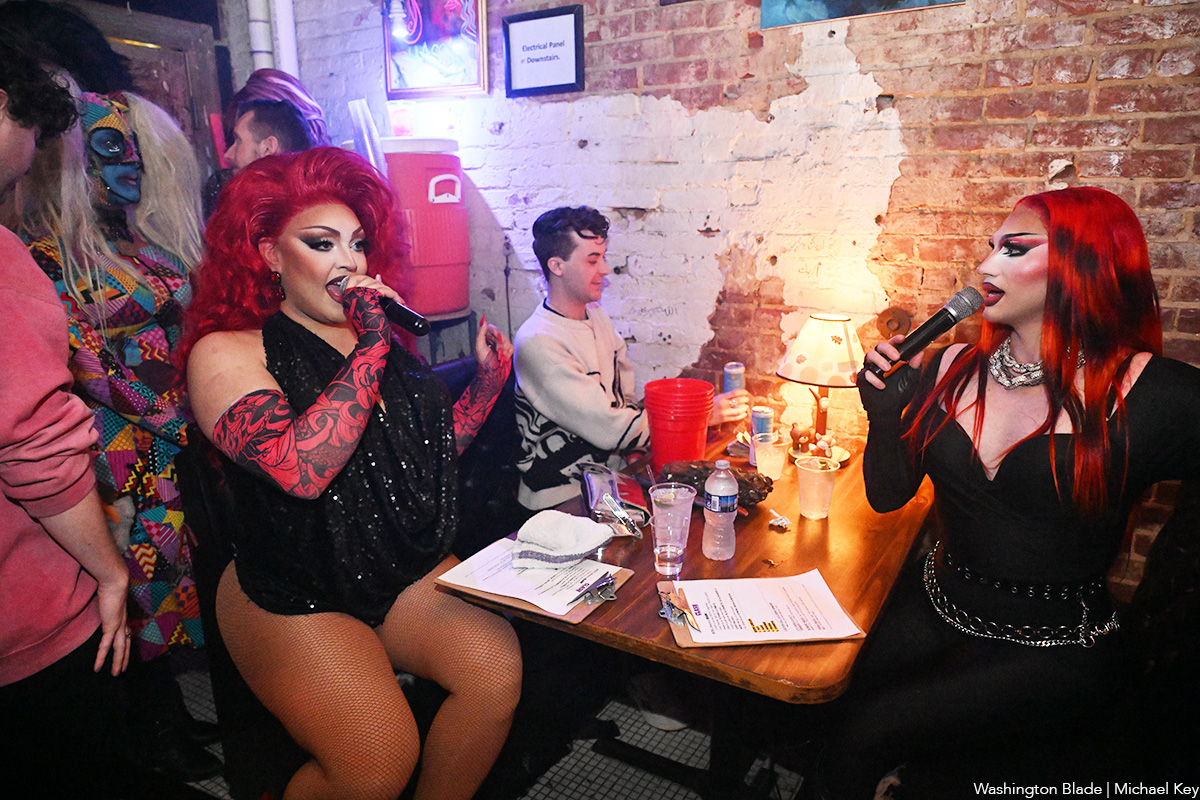
Crimsyn and Tatianna hosted the new weekly drag show Clash at Trade (1410 14th Street, N.W.) on Feb. 14, 2026. Performers included Aave, Crimsyn, Desiree Dik, and Tatianna.
(Washington Blade photos by Michael Key)
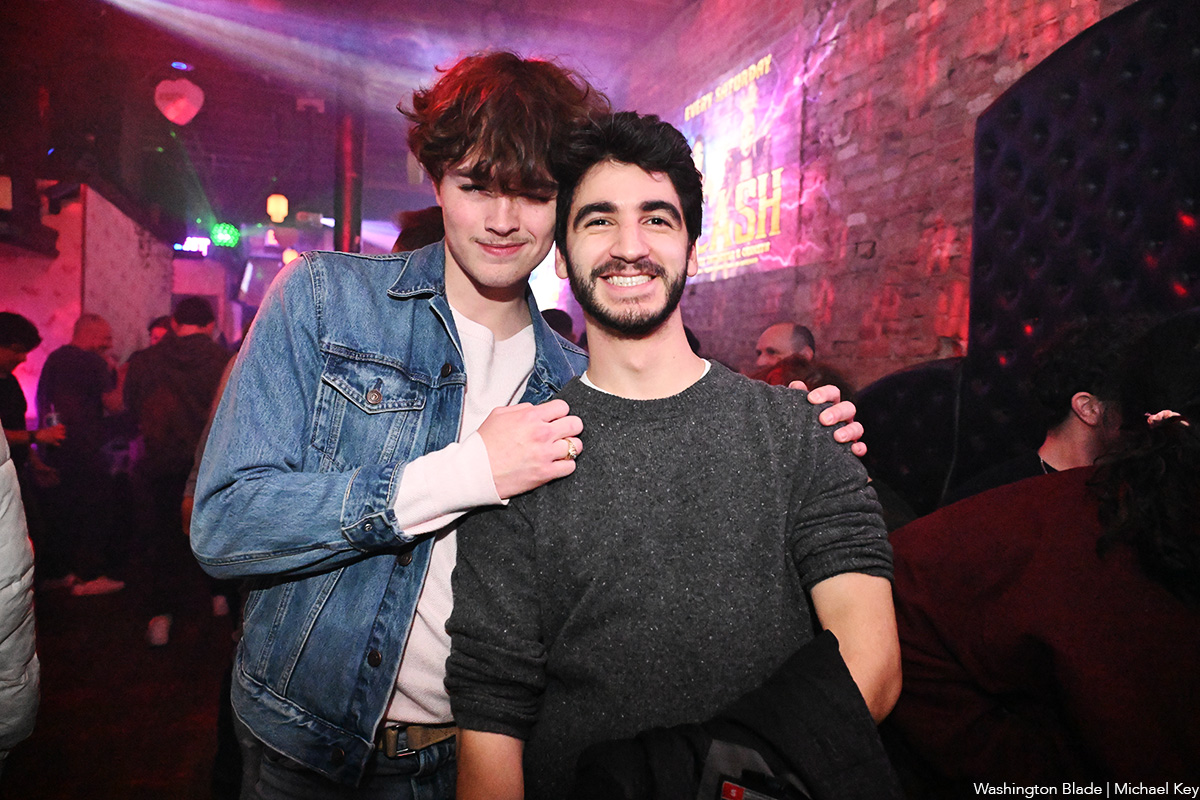
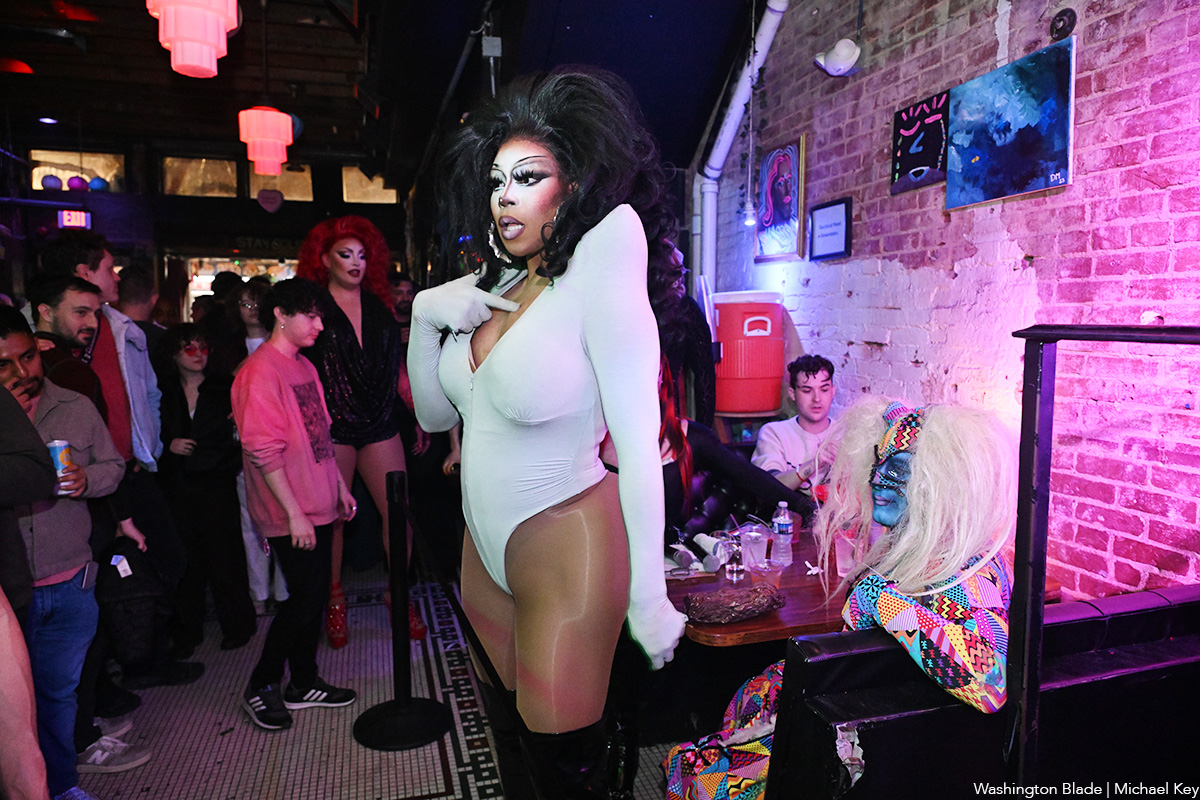
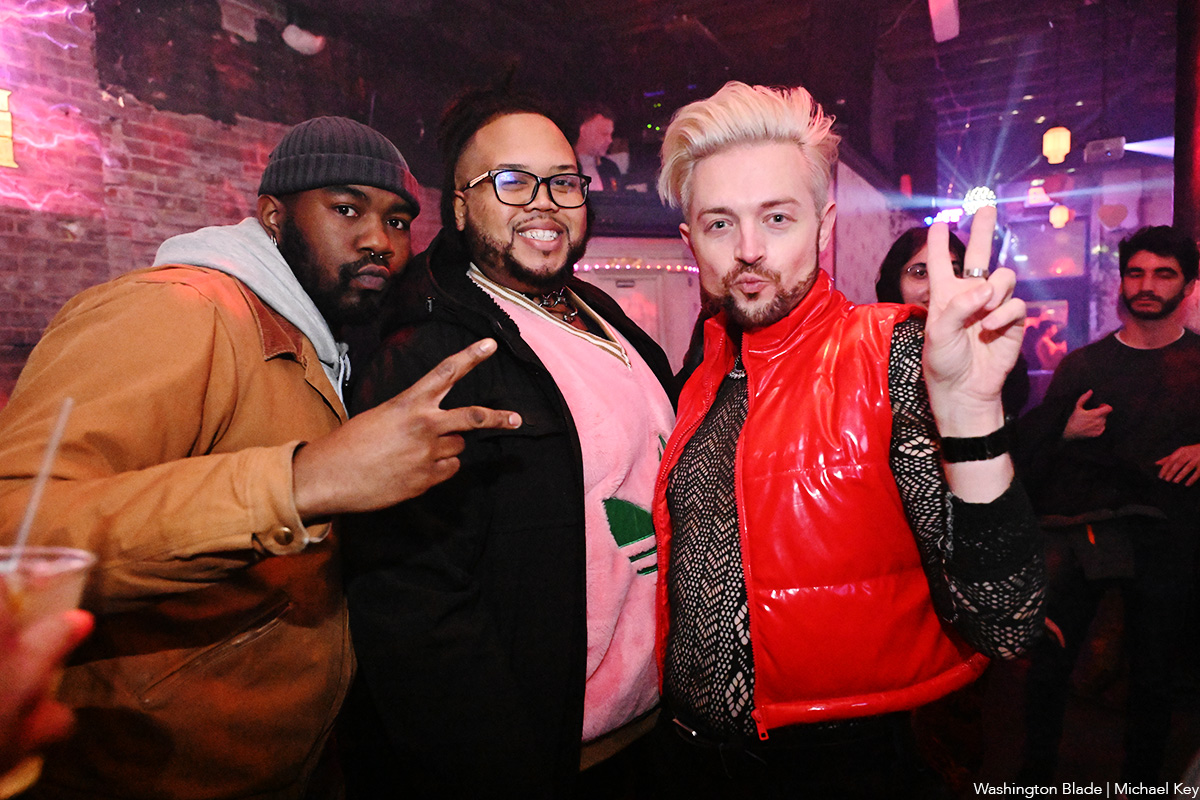
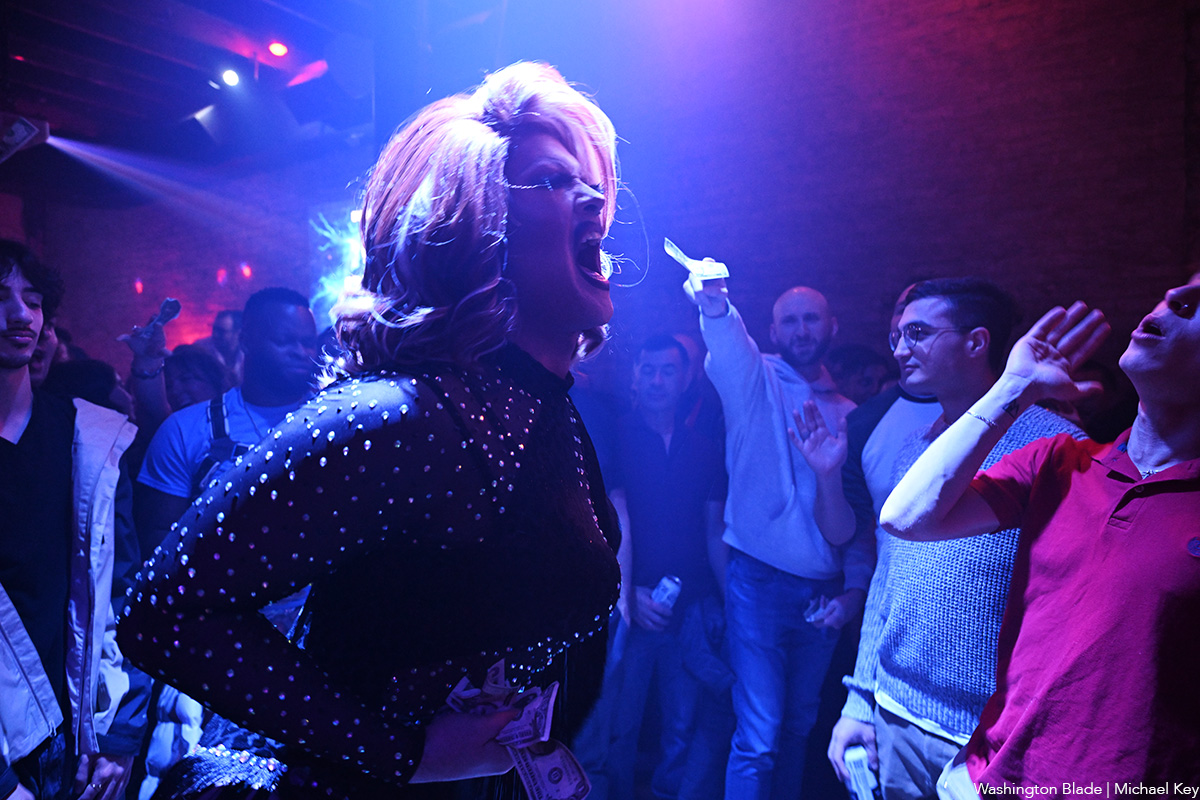
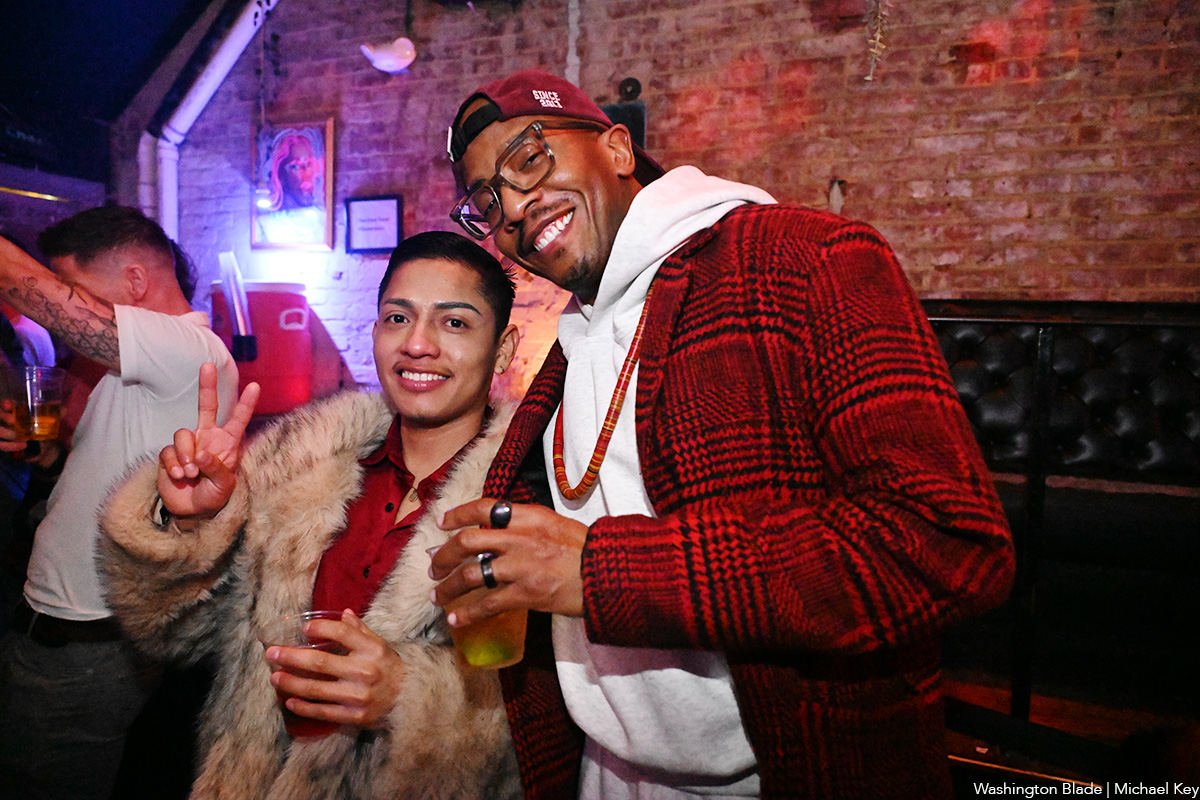
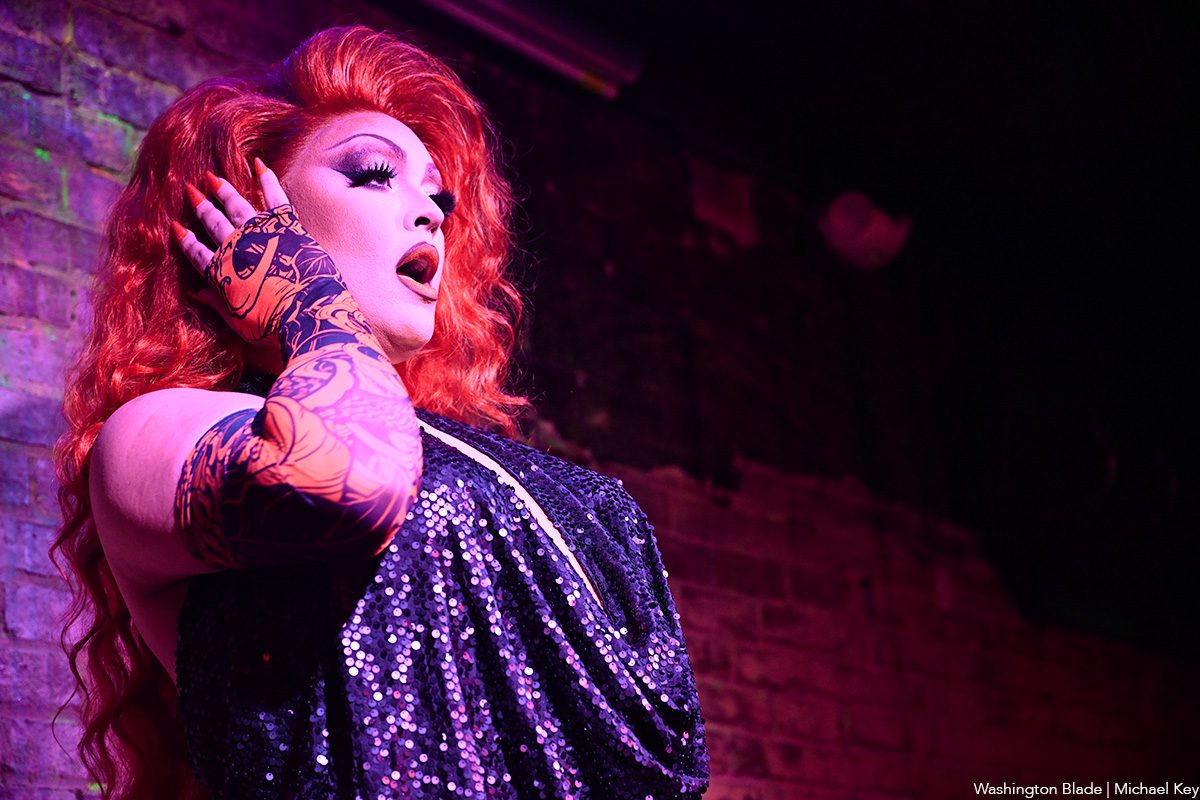
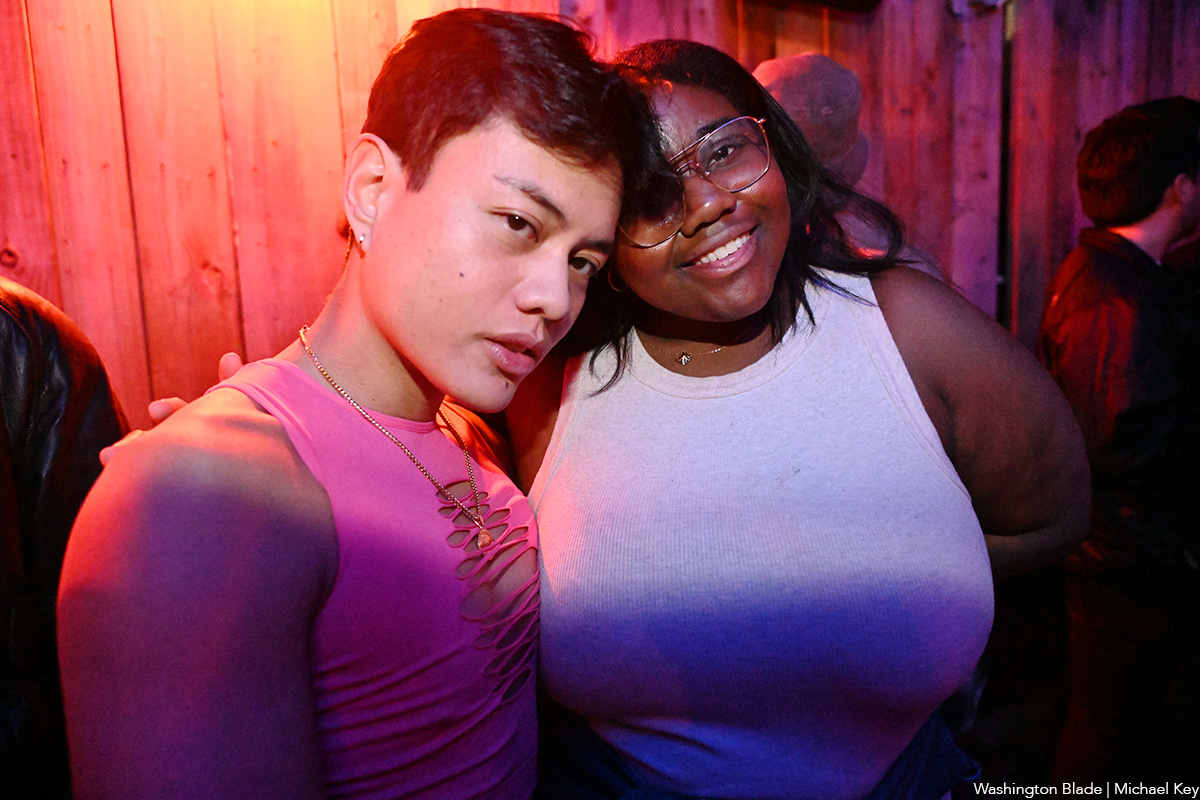
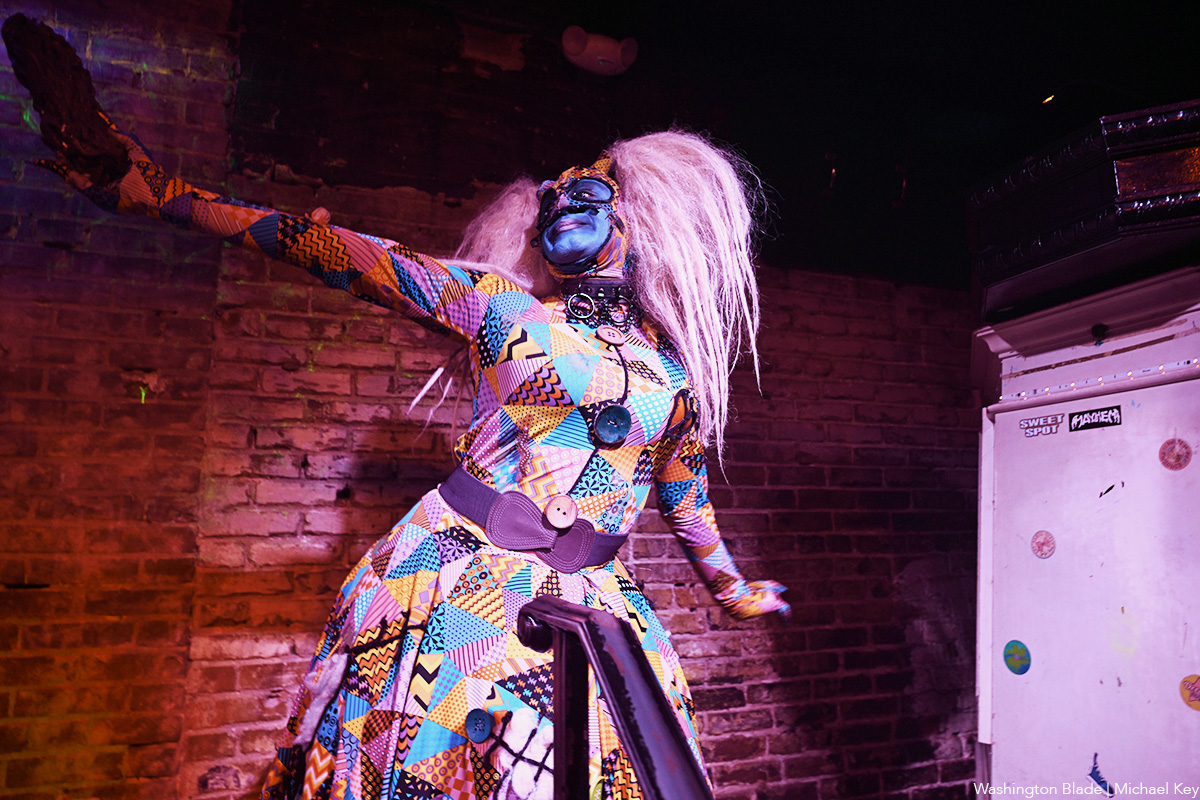
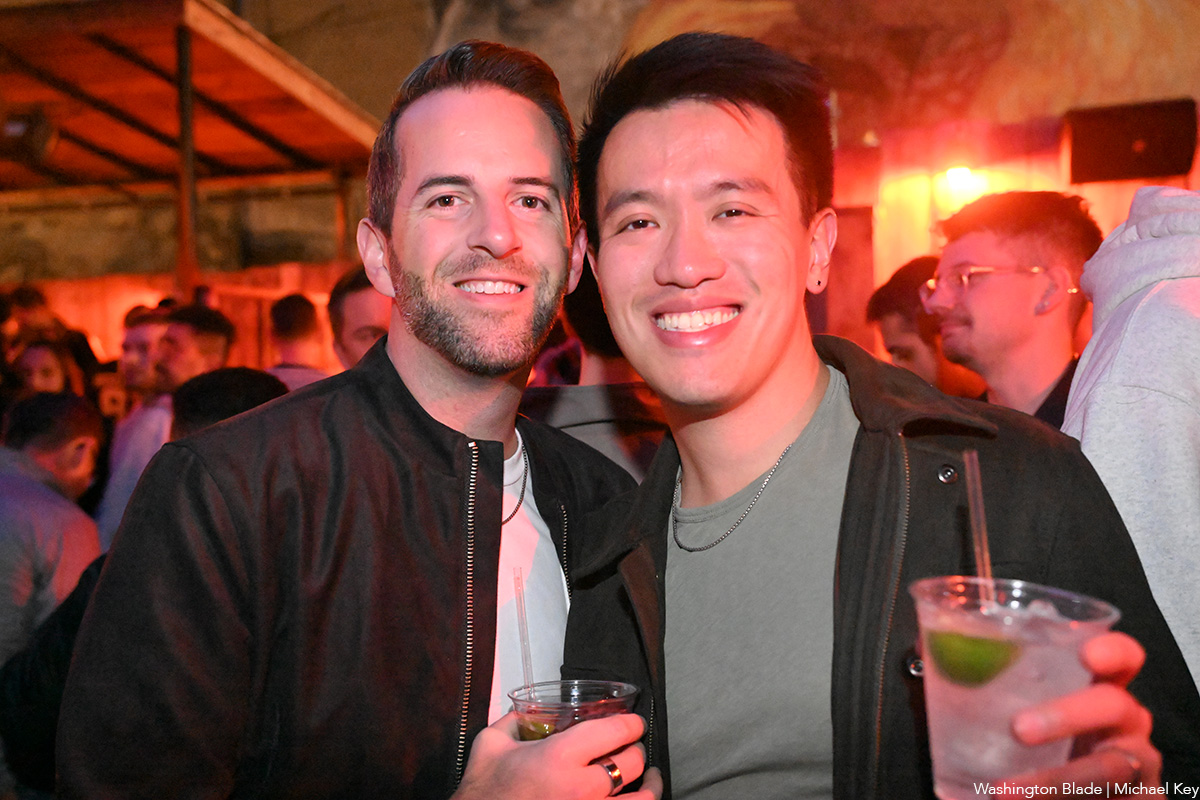
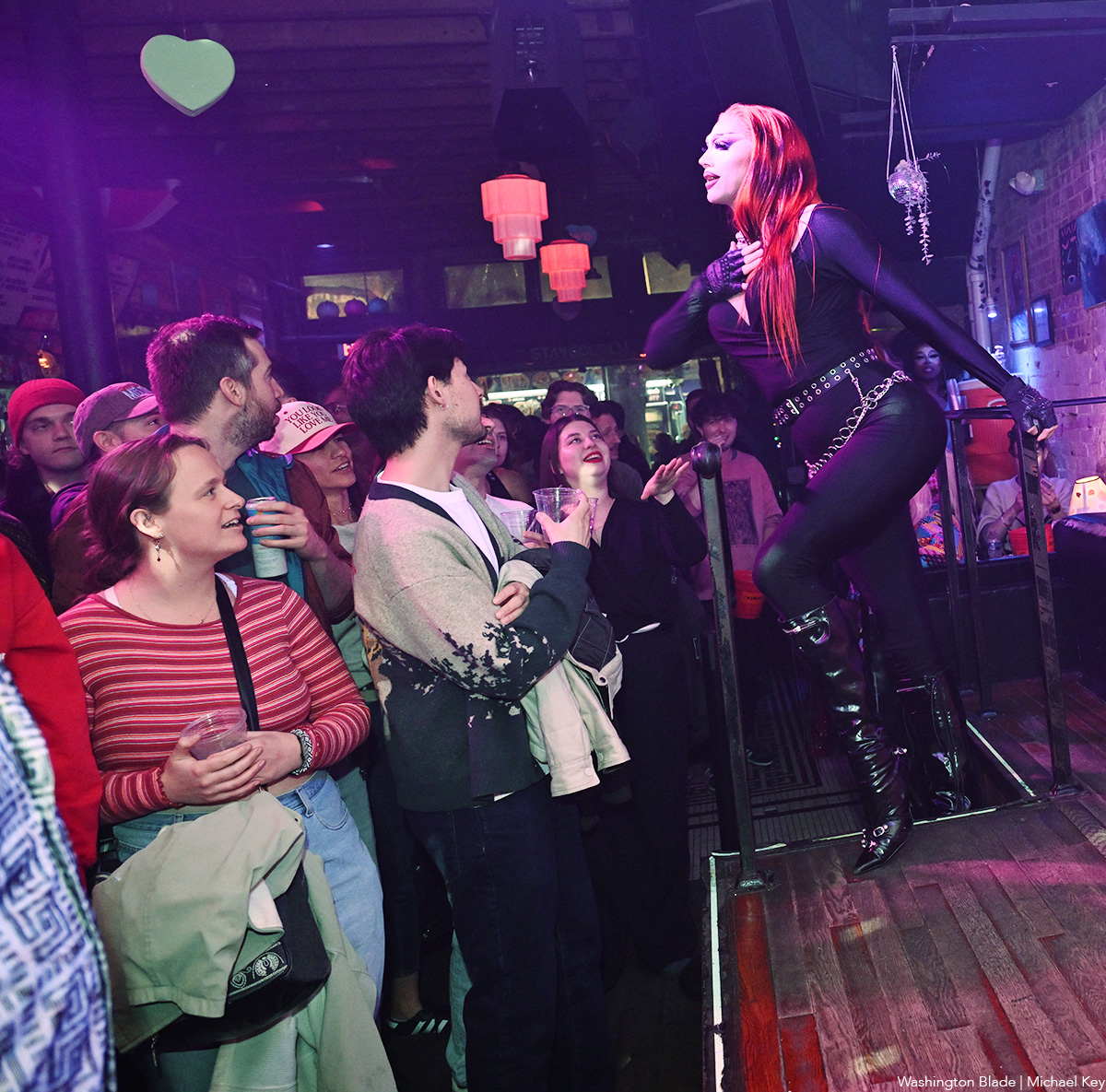
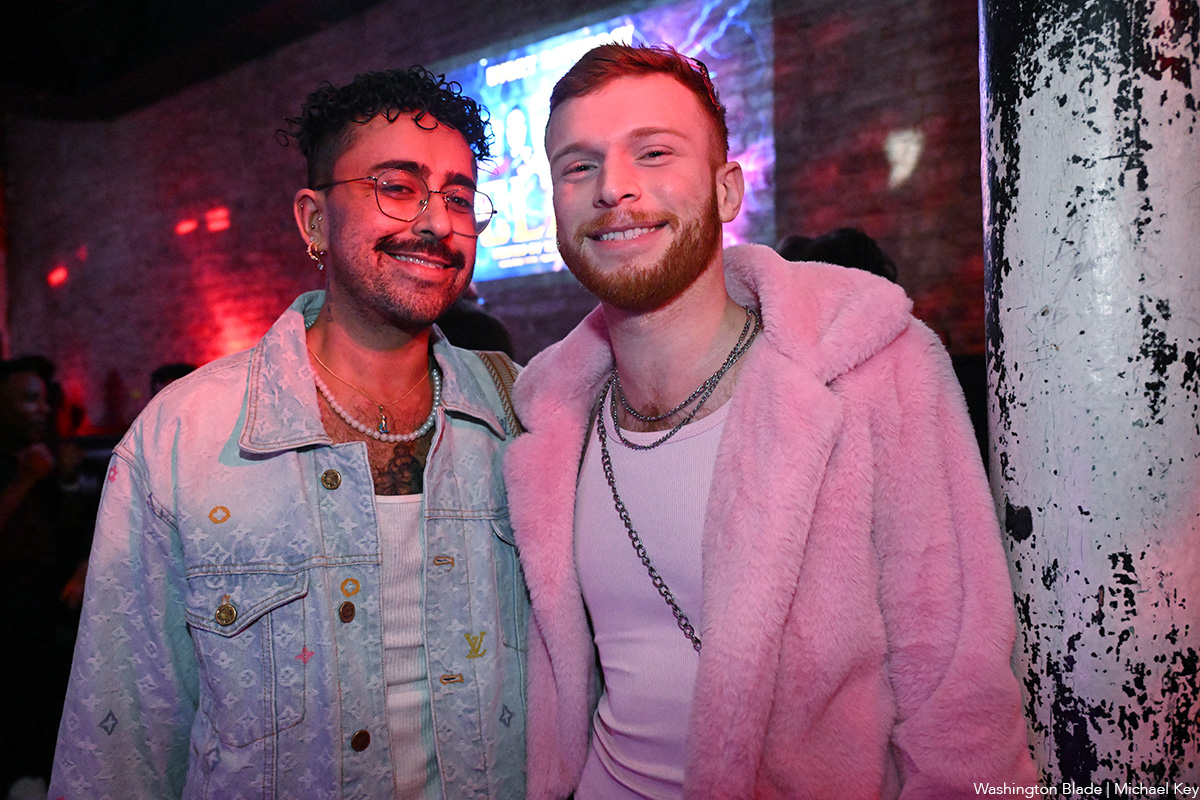
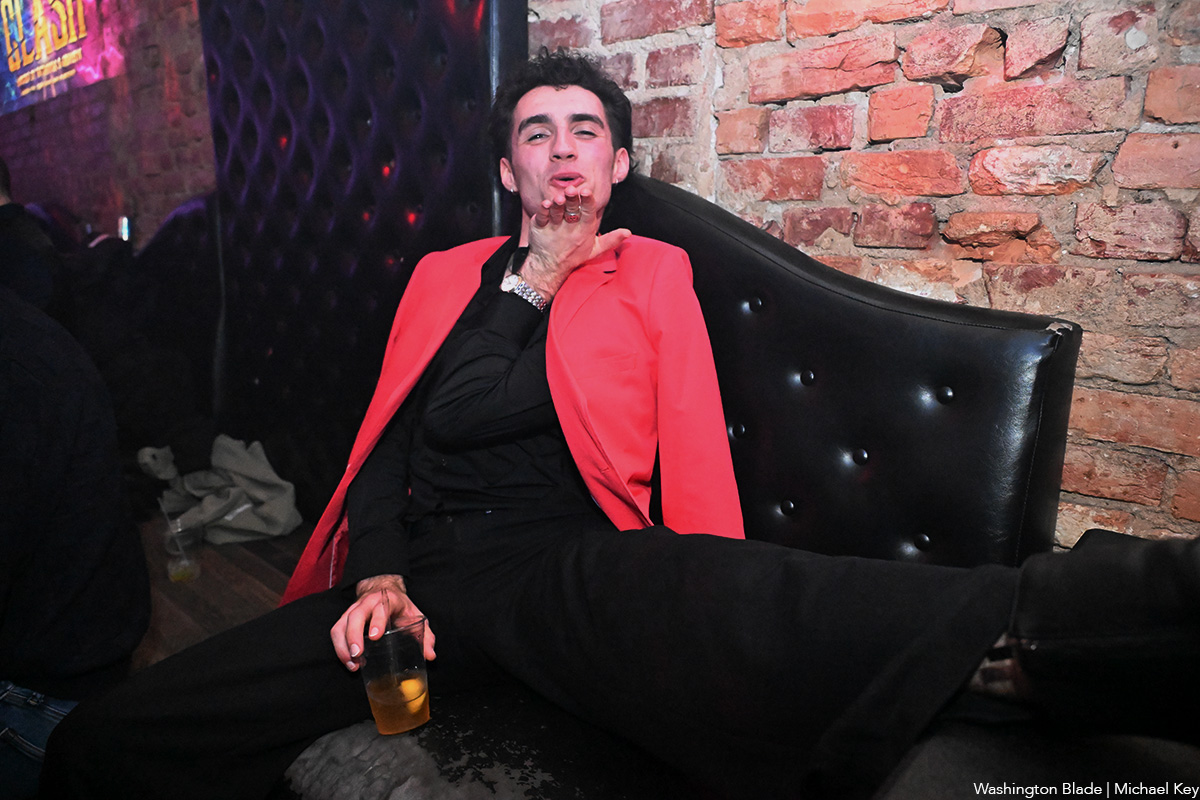
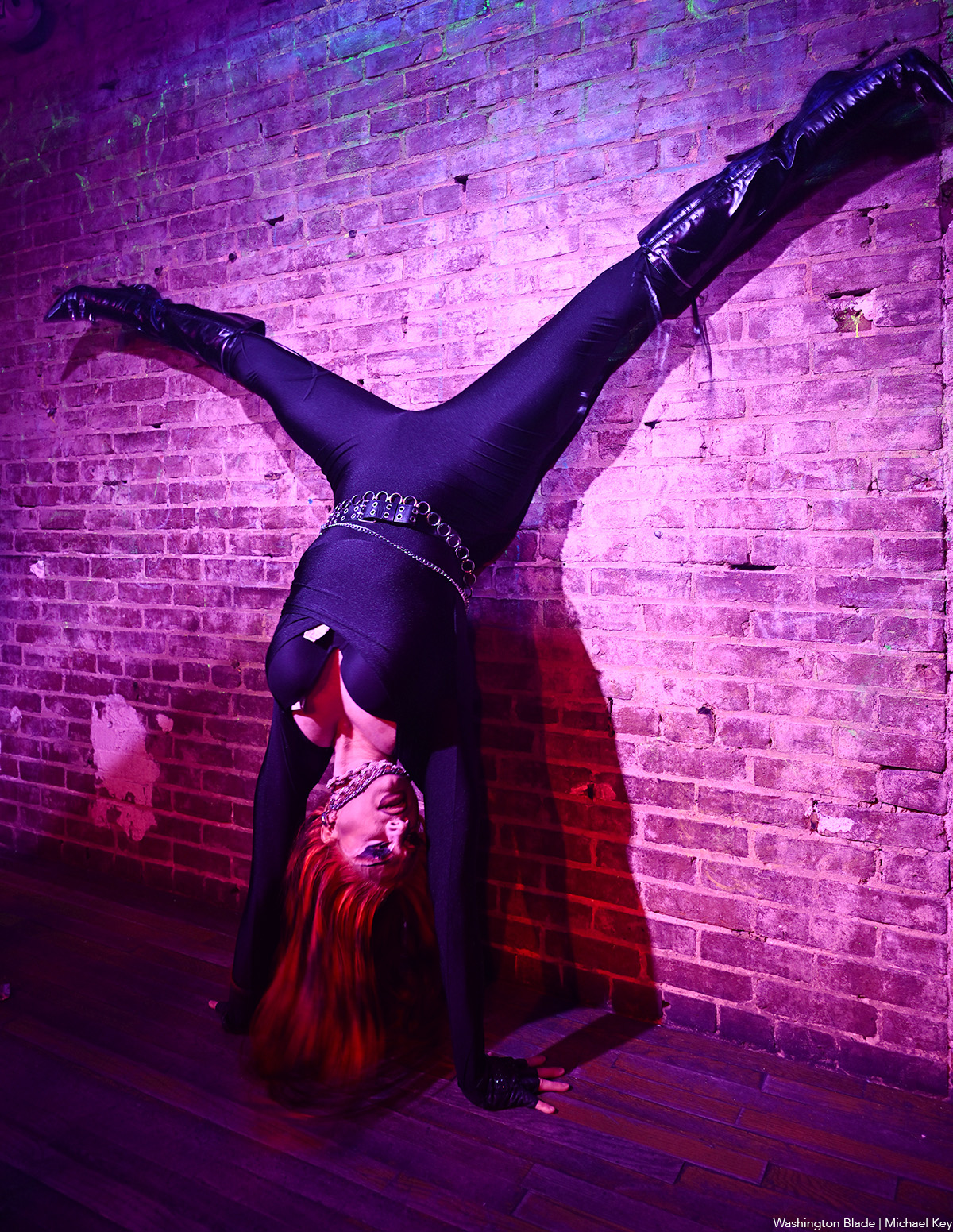
-

 Baltimore3 days ago
Baltimore3 days ago‘Heated Rivalry’ fandom exposes LGBTQ divide in Baltimore
-

 Real Estate3 days ago
Real Estate3 days agoHome is where the heart is
-

 District of Columbia3 days ago
District of Columbia3 days agoDeon Jones speaks about D.C. Department of Corrections bias lawsuit settlement
-

 European Union3 days ago
European Union3 days agoEuropean Parliament resolution backs ‘full recognition of trans women as women’



